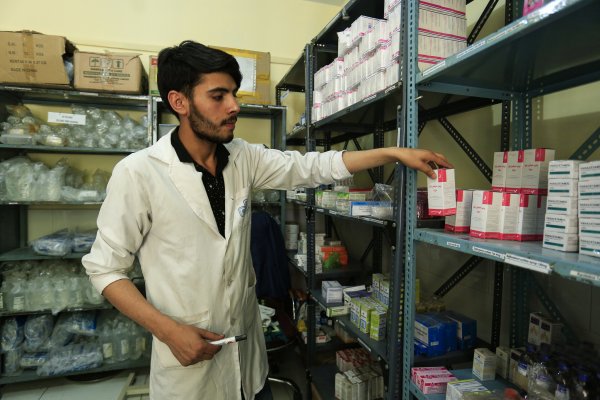New study alerts to the risk of poor quality medicines used to prevent and treat cardiovascular disease
A new study suggests there are important but neglected issues with substandard and falsified (SF*) medicines and medical products used to prevent and treat cardiovascular diseases.

The paper, The quality of medical products for cardiovascular diseases: a gap in global cardiac care, was published in BMJ Global Health.
From the very limited available data, the MORU Tropical Health Network and IDDO scientists found about one fifth of medicines reported as sampled in the literature were substandard or falsified.
The researchers found published data on 4,703 samples and of these 17.5 per cent were falsified or substandard, but the sample size is small in relation to the vast global trade in medical products for cardiovascular diseases prevention and treatment and firm conclusions about prevalence cannot be made. Due to the inadequacy of the underlying data they do not imply that 20 per cent of cardiovascular medicines are substandard and falsified globally.
Recalls and seizures of substandard and falsified cardiovascular medical devices were described, with 181 deaths attributed to substandard and falsified cardiovascular medical devices.
According to the Global Burden of Disease study, in 2019 there were an estimated 523 million cases of cardiovascular diseases and approximately 18.5 million people died from cardiovascular diseases (mainly from heart attacks and strokes), representing 32 per cent of all global deaths. This is predicted to reach 23.6 million deaths by 2030 as a result of socio-demographic changes including population ageing and increasingly common risk factors (e.g. obesity and diabetes). The global cost of cardiovascular diseases is enormous.
Due to their vital role in cardiovascular diseases management, poor quality cardiovascular medicines and medical devices will inevitably have adverse health impacts for patients, both short and long term, and can be life-threatening.
Although most studies investigating this issue come from financially poor countries, the issue of poor quality medicines is a global problem. Importantly, the quality of cardiovascular medicines with ‘Narrow therapeutic index’ (i.e. for which reduced or increased drug concentrations will lead to potentially very severe undesired effects in patients) has been a neglected research area.
This systematic review suggests that more and better quality data and data sharing are needed to better understand the global burden of this problem and inform interventions.
The researchers conclude that to better inform policy, more effort is needed to pinpoint issues with the quality of cardiovascular medical products and seek appropriate solutions to prevent, detect and respond to them. Ensuring quality cardiovascular medicines and devices from manufacturing throughout supply chains to consumers, in the context of ever-rising cardiovascular disease prevalence, is vital to ensure that their benefits for public health are realised.
To read the full paper view here.
* About SF medical products
Substandard medical products result from errors and negligence during manufacture, transportation, or storage. In contrast, falsified products result from criminal fraud. Although they have been traded for many centuries, in the last few decades the problem seems to have grown, partly because of the increased complexity of the global pharmaceutical economy and internet sales.
